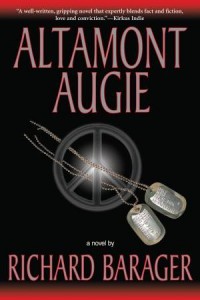Writing the Opening Sentence of a Novel

It is perhaps not fair that the first sentence of a 400-page novel containing thousands of sentences to come should be so critical, but it is. A great opening sentence not only sets the tone for the entire book. It sets the narrative hook every reader wants so desperately to be set. And much more.
Let’s consider three of the greatest opening sentences in all of literary fiction.
First, from Herman Melville’s Moby Dick: “Call me Ishmael.”
The first person character in question is cast as a pariah by name—Ishmael, the firstborn son of Abraham by Hagar, handmaiden to Abraham’s wife Sarah, as described in Genesis 16. But one year later, a son would be born to Abraham by Sarah: Isaac, the true child of God’s covenant, making it inevitable that thirteen years hence Ishmael, along with his mother Hagar, would be exiled by Sarah and a reluctant-but-acquiescent Abraham in order to secure Isaac’s inheritance.
So we know immediately that we are dealing with a story that will be recounted in a direct and assertive first person voice by a character who is an outcast. All from three words. Hard to top for word economy and impact.
Next up is the opening line from Leo Tolstoy’s masterpiece Anna Karenina: “Happy families are all alike; every unhappy family is unhappy in its own way.”
Aside from being one of the more profound, head-nodding aphorisms ever written, it speaks to the essence of Judeo-Christian values: the family as the cornerstone of society. And of the infinite miseries the constraints of family life can bring.
And finally, the opening sentence of The Adventures of Augie March by Saul Bellow, the greatest opening sentence in twentieth-century literature: “I am an American, Chicago born—Chicago, that somber city—and go at things as I have taught myself, freestyle, and will make the record in my own way: first to knock, first admitted; sometimes an innocent knock, sometimes a not so innocent.”
There can be little doubt that this is a story about the quintessentially American belief that a man can succeed in America by dint of character and effort alone, no matter how lowborn or disadvantaged he may be. In no other twentieth-century city was that more true than in the City of the Big Shoulders.
Another effective way to hook readers in the opening sentence—and one I employed in my recent novel Altamont Augie http://www.amazon.com/dp/0983066108—is by raising an intriguing question the author implicitly promises to answer.
According to John R. Clark, who manages a library in Maine and reviewed my novel for a literary blog, I believe I succeeded: “This book had me hooked from the opening sentence. I was active in the anti-war movement of the 1960s, was at Woodstock and devoured the music of the era. This book was in many ways, like reliving many of my most memorable experiences between 1966 and 1970. Aside from capturing the times, the events and the types of individuals populating that segment of society during the era, Richard Barager has created an engaging and immersive story with very intriguing characters. This is a work of fiction that will not only appeal to ‘Children of the ’60s’, but anyone looking for a fine historical read and an understanding of the times.”—John R. Clarke, TCM Reviews
So what was the opening sentence of my novel—and opening paragraph, I believe—that got Mr. Clark hooked?
“What kind of man goes to one of the biggest rock concerts of the sixties, manages to drown in a nearby irrigation canal an hour into the show, and is never identified? Who was this John Doe? Another hippie drifter left over from the Summer of Love, more drugged-out flotsam from the wreckage of an overwrought decade? A nutcase, one of thousands wandering the Bay Area back then? An oddball suicide, perhaps.”
I hope it hooks you, too.
Thanks again for having me.
About the Author
Richard R. Barager, MD, FACP, is a nephrologist in private practice in San Diego’s North County. Dr. Barager, who has twice received a San Diego County Medical Society “Top Doctor” award for distinguished care in his specialty, is a champion of the healing power of literature, and from time to time “prescribes” specific novels to receptive patients and families to help them cope with their burden of illness.
He has engaged the medical community at large in this endeavor via The Literary Doctor, a blog category devoted to the use of literary fiction to help patients and physicians alike explore the meaning of human illness in a way scientific method cannot. Dr. Barager has long believed the two finest callings in life are doctor and writer, the one ministering to the human condition, the other illuminating it, both—when performed with compassion and knowledge—capable of transforming it. Altamont Augie is his first novel.
To learn more about the author and his book, please visit his web site: http://richardbarager.com/



Absolutely wonderful blog post! And, yes, I was most definitely hooked by Richard’s first sentence and I’m off to visit his website!